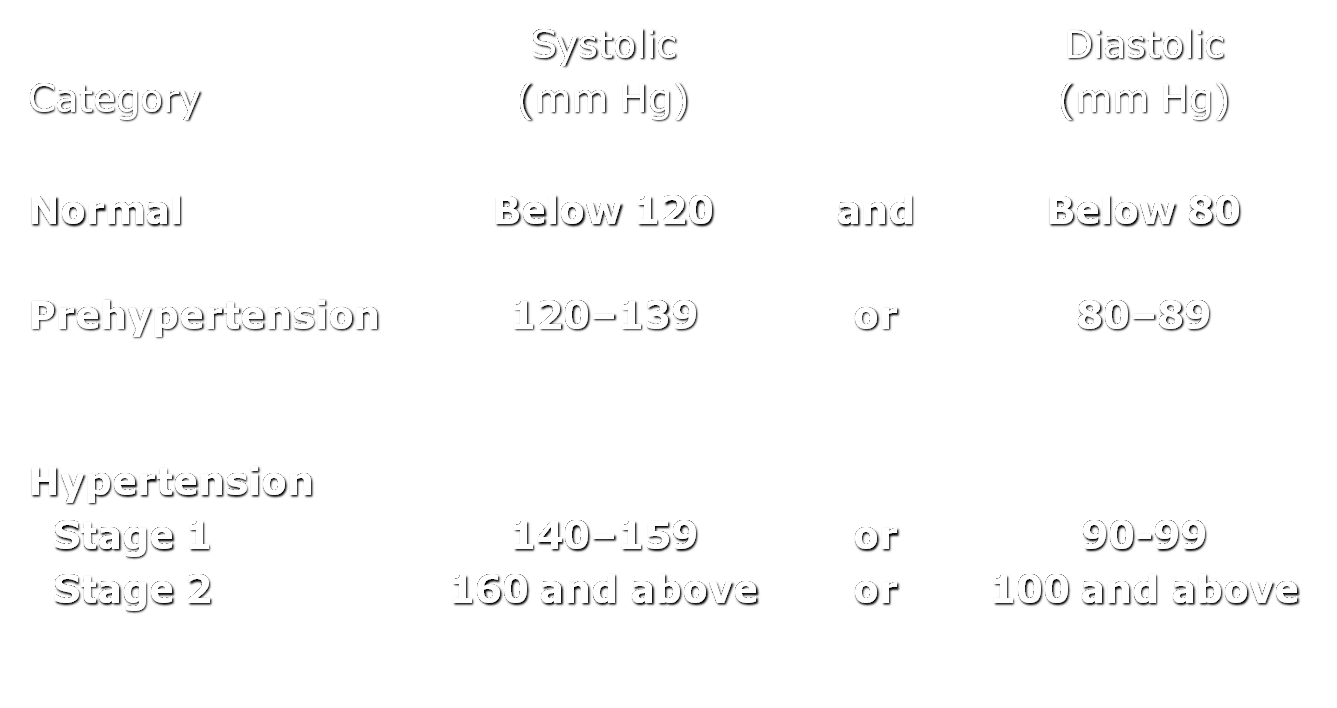Cards In This Set
| Front | Back |
|
Cardiovascular disease
|
CVD- a disease of the heart and blood vessels
-leading cause of heath in the united states
-claims one life every 36 seconds, 2,400 American lifes everyday
-some risk factors controllable some not
|
|
CSV risk factors that cna be changed
|
- obesity
-diabetes
-inactivity
-tobacco use
-high blood pressure
-high cholesterol levels
|
|
Blood pressure classification
|
 - |
|
Other CVD risk factors
|
-trig levels
-psychological and social factors:
----stress
----chronic hostility and anger
---- suppressing ppsychological distress
----- depression and anxiety
----- social isolation
-----low socioeconomic status
- alcohol and drugs
|
|
CDV risk factors that cannot be changed
|
-family history/heredity
-aging
-being male
-ethnicity- african americans have higher rates of hypertension and stroke
|
|
Other possible risk factors
|
-C-reactive protein
-Homocysteine
-lipoprotien (A) or LP(B)
-Infectios agents, such as: chlamydia pneumoniae, Cytomegalovirus, Helicobacter pylori
- Metabolic syndrome
|
|
Major forms of CVD
|
-Hypertension
-stroke
-heart disease and heart attacks
-congestive heart failure
-Atherosclerosis
|
|
Stages of plaque development
|
 - |
|
Atherosclerosis
|
-the thickening of the arteriesby deposits of fats, cholesterol, and other substances
-the process begins when the lining of the cells are damaged by :smoking, high cholesterol (LDL particles), high blood pressure
-blockage to the cornary arteries is a heart attack
-blockage to the brain is a stroke
|
|
Heart attack
|
- or myocardial infarction results when coronary artery becomes blocked
-Angina pectoris- is a chest pain, a signal that the heart is not getting enough oxygen to supply its needs
-Arrhythmia- a condition when eletrical impulses that control the heart are disrupted, resulting in an irregular pattern
-sudden cardiac death- or cardiac arrest are caused by arrhythmias and can cause death if not treated immediatly
|
|
Diagnosis and treatment for heart disease
|
- Diagnosis- exercise stress test, MRI, echocardiagram, angiogram
-Treatment- coronary bypass surgery, balloon angioplasty, prescription medications, low-dose asprin, lifestyle changes
|
|
Stroke
|
Cerebrovascular Accident occurs when the brain is cut off
-types of strokes
--Ischemic stroke- caused by blood clot
--Hemorrhagic stroke- caused by ruptured blood vessel
-strokes may cause paralysis, walking disability, speech impetiment, or memory loss
-treatment may include clot-dissolving and antihypertensive drugs
|
|
Congestive heart failure
|
-a condition resulting in the hearts inability to pump out all of the blood that returns to it
-blood blocks the viens leading to the heart, causing an accumulation of fluid in various parts of the body
- caused by high blood pressure, heart attack, atherosclerosis, birth defects, rheumatic fever
|
|
Protect from cardiovascular disease
|
- eat heart healthy
--decreased fat and cholesterol intake
--increase fiber
--decreased sodium intake, increased pottassium intake
--moderate alcohol consumption
--DASH
--exercise regularly
-avoid tobacco
-know and manage your blood pressure
-know and manage your cholesterol
-develop ways to handle stress and anger
-know your risk factors
|
|
Reduce CVD
|
 D |



